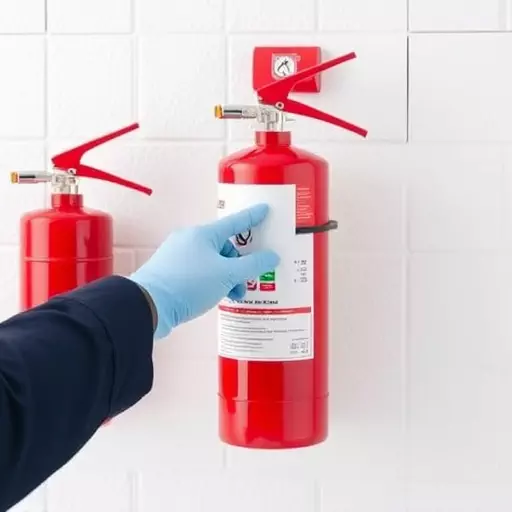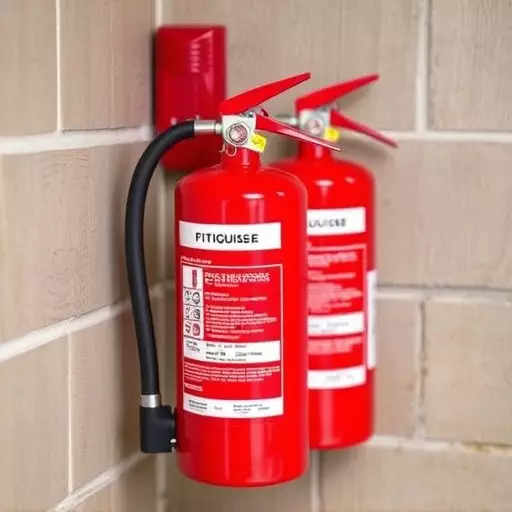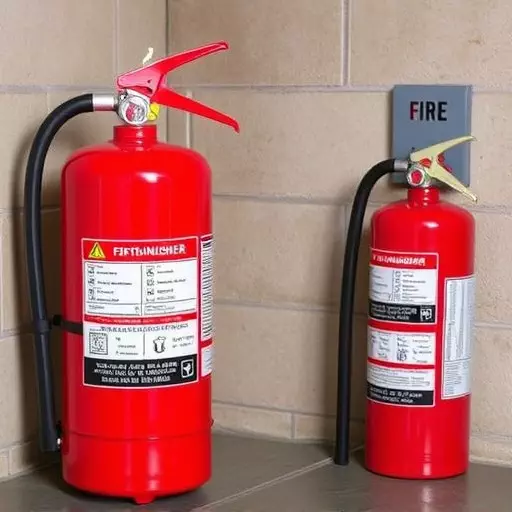Jacksonville businesses must follow strict fire extinguisher maintenance rules, including regular inspections. A comprehensive fire extinguisher inspection checklist should cover placement, functionality, and accessibility, with monthly checks for pressure levels, mechanisms, and visual integrity. Annual inspections involve detailed maintenance, testing, and updating equipment, ensuring compliance with local regulations and a safe workplace. Implementing a dual inspection strategy—monthly basic checks and annual comprehensive evaluations—is key to effective fire safety management.
“Ensuring the safety of your Jacksonville business is non-negotiable. A crucial aspect often overlooked is regular fire extinguisher inspections—a critical step in fulfilling local regulations and protecting your establishment. This comprehensive guide offers a detailed look at navigating the world of fire safety equipment maintenance.
From understanding regulatory requirements to creating an efficient inspection checklist, we cover all you need to know about monthly and annual inspections. Learn the essential practices for maintaining and documenting these vital life-saving tools.”
- Understanding Fire Extinguisher Regulations in Jacksonville
- Creating a Comprehensive Fire Extinguisher Inspection Checklist
- The Frequency of Fire Extinguisher Inspections
- Essential Maintenance and Record-Keeping Practices
Understanding Fire Extinguisher Regulations in Jacksonville
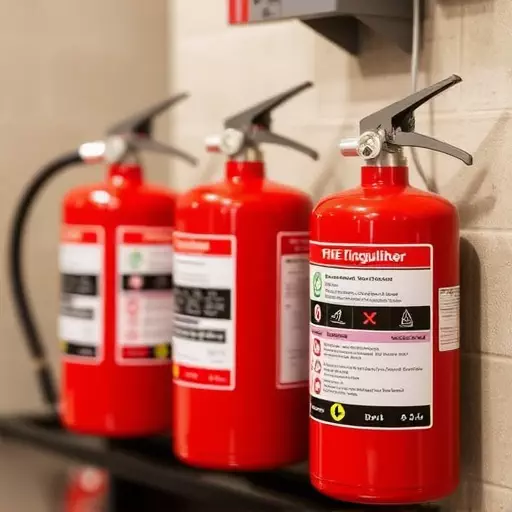
In Jacksonville, businesses are subject to specific regulations regarding fire extinguisher maintenance and inspection. According to local guidelines, regular fire extinguisher inspections are mandatory to ensure safety and compliance. The frequency of these inspections depends on the type of business and the potential fire hazards present. A typical fire extinguisher inspection checklist Jacksonville includes verifying the proper placement, functionality, and accessibility of extinguishers. During monthly fire extinguisher inspections, key aspects such as pressure levels, operating mechanisms, and visual integrity checks are conducted to ensure each extinguisher is ready for immediate use in case of a fire emergency.
Annual fire extinguisher inspections take a more comprehensive approach, involving detailed maintenance, testing, and potential replacement if necessary. These regular check-ins not only safeguard against potential risks but also help businesses stay informed about any required upgrades or changes to their fire safety equipment. Compliance with these regulations is not just a legal necessity; it’s a crucial step in fostering a safe working environment for employees and customers alike.
Creating a Comprehensive Fire Extinguisher Inspection Checklist
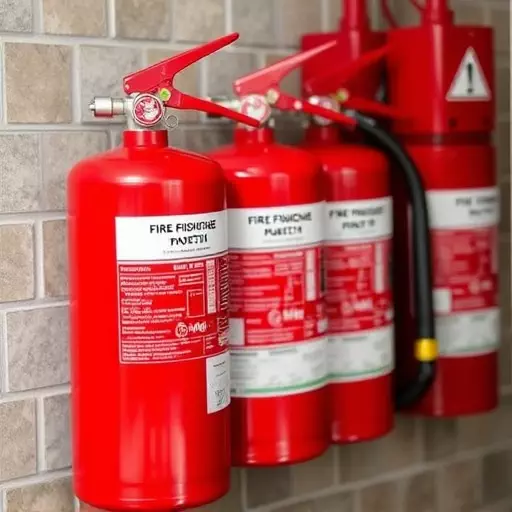
Creating a comprehensive fire extinguisher inspection checklist is essential for any business aiming to maintain a safe and compliant environment. This list should cover all critical components, ensuring every extinguisher is in optimal working condition. Start by verifying the location and accessibility of each extinguisher, checking if it’s clearly marked with easy-to-read labels and located near potential fire hazards. Then, inspect the physical condition: look for signs of damage, corrosion, or leaks. Verify that the pressure gauge reads within the operating range, and ensure the pin is intact and in place. Check the expiration date and service history, as well as any maintenance logs.
A detailed checklist should also include testing procedures, such as manual operations and hydraulic tests (if applicable), to confirm functionality. Pay attention to electrical extinguishers, checking for proper grounding and any visible signs of damage or overheating. For businesses in Jacksonville, regular monthly fire extinguisher inspections are recommended to identify issues early, while annual inspections ensure all equipment is up-to-date and compliant with local regulations.
The Frequency of Fire Extinguisher Inspections
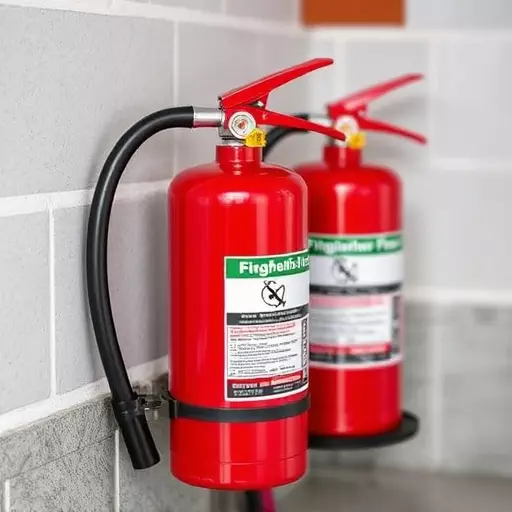
Fire extinguishers are critical safety equipment for any business, and regular inspections are non-negotiable to ensure they remain functional during an emergency. The frequency of these checks depends on several factors, including local regulations and the type of fire suppression system installed. As a general guideline, businesses in Jacksonville should aim for a well-rounded inspection schedule.
Monthly fire extinguisher inspections are recommended to verify the device’s integrity, ensuring no damage or corrosion has occurred. This frequent check also allows for easy identification of any potential issues and timely replacement of disposable components like pressure gauges and batteries. Additionally, an annual comprehensive inspection by certified professionals is essential to assess the overall system, including hydraulic systems, valves, and pipe connections. This thorough evaluation guarantees that all fire extinguishers are in optimal working order, ready to protect against devastating fires.
Essential Maintenance and Record-Keeping Practices

Regular maintenance and record-keeping are paramount for any business aiming to maintain a safe working environment. When it comes to fire safety, a well-kept fire extinguisher inspection checklist Jacksonville is invaluable. Implementing monthly fire extinguisher inspections ensures that these critical safety devices are in optimal condition and ready for immediate use. This routine practice involves visually inspecting the extinguishers for any signs of damage, corrosion, or leakage, as well as checking the pressure gauge to ensure proper functionality.
Beyond monthly checks, annual fire extinguisher inspections are essential. These comprehensive assessments go deeper than visual examinations, often requiring professional technicians to test the device’s operation and certify its readiness. Businesses should keep detailed records of all inspection findings, maintenance performed, and replacement dates. This documentation not only aids in compliance with local fire safety regulations but also serves as a valuable reference for tracking equipment longevity and identifying potential issues before they escalate.
